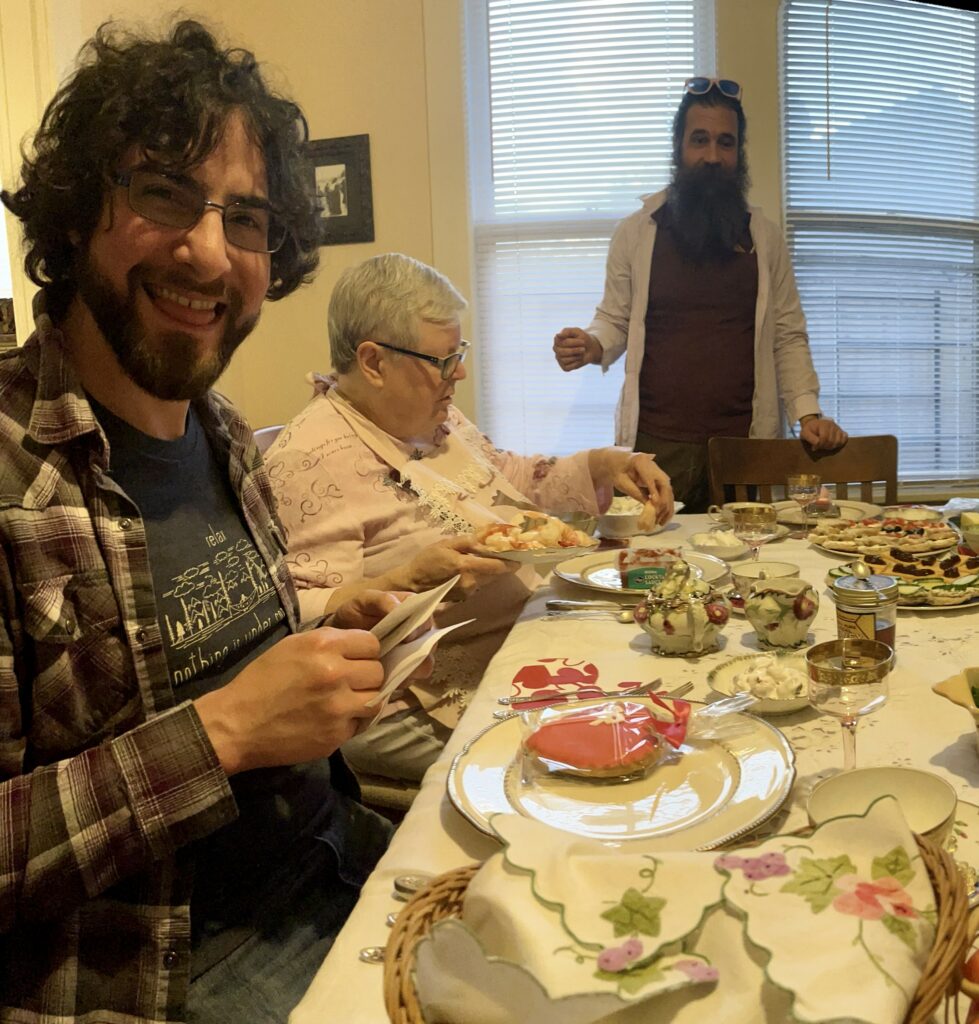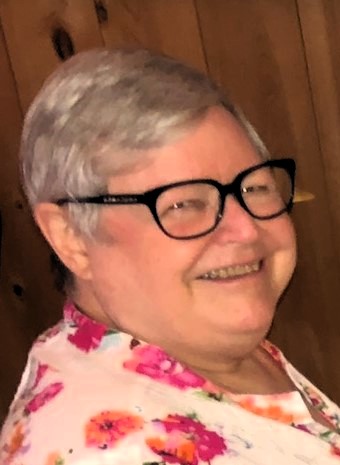
On Wednesday, July 10, Kate Chilton’s friends and family will gather at the meetinghouse beginning at 6:00 pm central, with worship beginning at 6:30 and tea service at 7:30. For those unable to come in person, Zoom access will be available (to request access information, please email memphisfriendsmeeting@gmail.com).
Below is the wonderful obituary written by Kate’s brother Randy. Look for a MFM remembrance of Kate also in the upcoming July MFM newsletter.
KATE CHILTON (August 11, 1952-June 5, 2024)
Kate Chilton (Catherine Magruder Chilton) had little patience for male doctors, bad drivers, poor service, sweet tea, boring food, falsehood, illogic, misrepresentation, misquotes, misplaced commas, misplaced apostrophes, scholarly pretense, obscure modern poetry, or pretty much anything by title or social position or just rhetoric that claimed an authority it hadn’t earned from her. She was also profoundly kind deep down to the bottom of her soul, a loving person who knew the power and rewards of giving love. And she was generous in a dozen different ways. She loved to give, and made you feel good in accepting her gifts, especially if it involved food. Kate loved food—she loved tasting new tastes, she loved the color and texture of properly cooked food, she loved the customs and rituals of sharing meals, she loved preparing and serving food to her friends. Her teas and holiday dinners were famous, with numerous courses and cakes and candies and exotic British condiments like clotted cream, Ploughman’s Pickle, and lemon curd. She was an accomplished cook for large groups, too. In the somewhat distant past, she became skilled at putting together feasts for the Society for Creative Anachronism (the SCA), with dishes prepared as they would have been in Tudor England.
The SCA was just one of Kate’s very wide interests, which were reflected in the wall art and furnishings and bookshelves of her apartment on Eastmoreland: local Memphis artists, collectible china and pottery, a bookshelf and window seat hand-made by her father, and on the shelves Nero Wolfe and Georgette Heyer and J. R. R. Tolkien and above all C. S. Lewis. She wanted passages from the Narnia books read to her out loud into her last days. Also on her walls were many family photos. Kate’s middle name was Magruder after her father’s mother, who was the daughter of William Howard Magruder, an English Professor at and president (for a short time) of what was then Mississippi A&M—now Mississippi State University, where Kate earned her Bachelor’s degree. She was born in post-war Southern California, but born into a Southern family that goes back many generations in Mississippi, and felt always that her true home was here in Memphis, where her father’s brother and his family lived. When she spoke of Memphis politics and history, she always used the first person plural: “we have really good water here, and we want to keep it that way,” “we know barbecue [for years, she sent frozen packages of Interstate Barbeque to her brother’s family for Christmas],” “when they wanted to build a thruway through Overton Park, we just said no.” When Kate was able to move back to Memphis on her own, she linked herself to several communities in the city—the SCA certainly, but also the C. S. Lewis Society and the Friends—and then brought them together at her teas and holiday meals in stimulating and often unexpected company.
Kate was a journalist in the Army in the 70s, and then at a small paper in West Memphis in the 80s. She enjoyed writing the stories, but she went on to become a senior copy editor for Sage Publications, publisher of several scholarly journals, and worked there long enough to earn a sabbatical in England (to hone her editing skills being the rationale, but really to immerse herself in the culture and history—her skills needed no honing). She was a zealous student and champion of proper grammar and social custom all her life without, somehow, being straight-laced. She was a great proponent and defender of women’s rights, to the point that in basic training, she couldn’t understand why women were not prepared for combat along with the men. (It’s not clear whether she wanted to be IN combat, but she saw no reason why she should not be just as ready for it as anyone else in the Army.) Kate was always, from her earliest age to the day she died, her own person—outspoken and uninhibited in her opinions and interests and desires—and anyone who knew her will remember her and miss her dearly. She is survived by her brother Randy (Katie), her nieces Meg Bishop (Eli) and Liz Kinsella, her great niece and nephews Katy, Hal and John Kinsella, her many cousins scattered across the country, and her wide community of adopted family in Memphis and the world.

